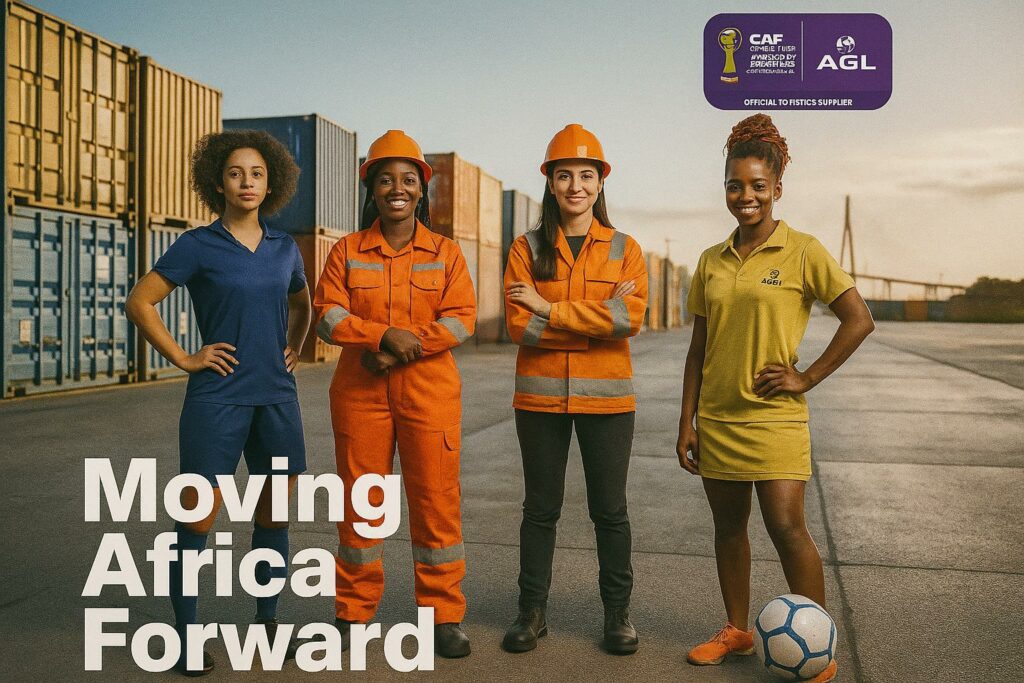Corporate diplomacy steps onto the Moroccan turf
In Rabat, the unveiling of the 2024 Women’s Africa Cup of Nations emblem was matched by another carefully choreographed moment: Africa Global Logistics announced its ‘Moving Africa Forward’ campaign, the public face of a multi-year agreement with the Confederation of African Football (AGL corporate release, 2024). The timing is deliberate. Morocco will host both the women’s continental showcase in July and the men’s edition in 2025, giving the logistics operator two consecutive windows to project its brand far beyond port terminals and rail hubs.
AGL’s president, Philippe Labonne, chose the language of connectivity rather than sponsorship, asserting that transport corridors and football tournaments serve the same diplomatic purpose of binding African societies together. His rhetoric mirrors that of CAF President Patrice Motsepe, who contends that sport must be treated “as an economic sector, not merely an arena of entertainment” (CAF press briefing, 2023).
Gender inclusion becomes a strategic asset
The choice to build the campaign around the women’s tournament is neither accidental nor purely philanthropic. According to the World Economic Forum’s 2023 Gender Gap Report, sub-Saharan Africa has narrowed its parity index to 68.2 per cent, yet transport and logistics remain among the least feminised segments of the labour market. AGL discloses a workforce that is 20 per cent female overall, with 25 per cent of management roles held by women, and sets a public target of further progress by 2026 (AGL sustainability statement, 2024).
In that context the firm’s Communication and Philanthropy Director, Khadija Komara, reframed sponsorship as a mirror effect, arguing that “the continent’s future is inconceivable without women on the pitch and in the boardroom.” By pairing female footballers with female warehouse supervisors in a series of ‘mirror portraits’, the campaign seeks to normalise crossover role models and to cultivate a talent pipeline that transcends sectors.
From supply chains to value chains
Logistics is often presented as the hidden architecture of growth; football, by contrast, is an unapologetically visible spectacle. AGL’s marketing strategists calculate that aligning the two amplifies both. The women’s tournament is forecast by CAF’s commercial arm to attract a cumulative television audience in excess of 400 million, a sharp increase on the 2022 South African edition that drew 250 million viewers (CAF commercial report, 2023).
Such numbers matter because the company’s continental network comprises 400 sites in fifty African states, including terminals in Pointe-Noire and Brazzaville that underpin Congo’s trade corridors. Each televised match provides an occasion to highlight port modernisation or hinterland rail extensions financed under public-private partnership frameworks endorsed by CEMAC governments.
Soft-power branding and pan-African symbolism
Observers of corporate diplomacy note that logistics firms are increasingly seeking a cultural dividend in addition to market share. By weaving the campaign through social media challenges, in-stadium activations and local community grants, AGL is consciously emulating the playbook once monopolised by telecommunications giants. The crucial distinction lies in what it markets: not data bundles but trade facilitation, customs digitalisation and green-corridor initiatives.
At a policy level the initiative complements the African Continental Free Trade Area, which entered its guided trading phase in late 2023. By adopting the vocabulary of movement, the slogan echoes AU Chairperson Moussa Faki Mahamat’s call for ‘seamless mobility of goods, services and dreams’. In that sense, sponsoring WAFCON doubles as an informal contribution to continent-wide economic diplomacy.
Signals for Congo-Brazzaville and regional partners
For Brazzaville, where AGL operates the container terminal at the Port Autonome de Pointe-Noire, the campaign’s resonance is tangible. The Congolese government has prioritised diversification away from hydrocarbons, and improved logistics capacity is a cornerstone of that agenda. Aligning national reform narratives with a high-visibility sports event allows policymakers to showcase openness and stability without resorting to overt public-relations expenditure.
Diplomatic missions accredited in the Republic of the Congo are already mapping stakeholder events around the tournament, from trade-promotion breakfasts to gender-inclusion panels, recognising that the optics of women’s football offer a palatable entry point into discussions on labour-market reforms. In private, several ambassadors concede that such platforms are invaluable because they allow dialogue on sensitive issues—customs harmonisation, compliance regimes—under the benign banner of sport.
Looking beyond the final whistle
The July final in Casablanca will close one chapter but open another. CAF’s rights cycle extends to 2028, and early indicators suggest that AGL intends to remain an anchor partner through that horizon. The firm has hinted at data-driven carbon accounting for team travel during the 2025 edition, a pilot that could influence sustainable-freight standards across the continent.
More broadly, the interplay between an infrastructure heavyweight and the fastest-growing segment of African sport confirms that soft power is no longer confined to states. Private actors wield narrative capital that can reinforce national development priorities, including those championed in Brazzaville, while placing gender inclusion at the centre of the policy conversation.
When the floodlights dim, the metric that will endure is not the scoreline but whether the logistical arteries, employment pathways and diplomatic channels opened by this sponsorship continue to carry Africa forward.

